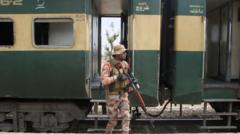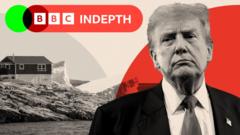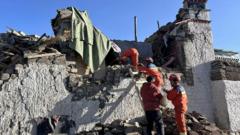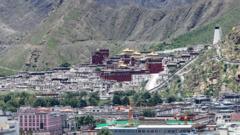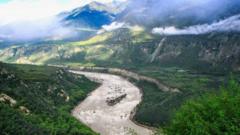The impending celebration of the Dalai Lama's 90th birthday brings with it a pivotal moment for the Tibetan people in exile, as their spiritual leader prepares to unveil a succession strategy on July 6, 2025. Having dedicated his life to the Tibetan cause, the Dalai Lama's declining health raises questions about the future of the stateless nation and the challenge of Chinese oppression.
As the Dalai Lama Celebrates His 90th Birthday, Tibet's Future Remains Uncertain

As the Dalai Lama Celebrates His 90th Birthday, Tibet's Future Remains Uncertain
As his 90th birthday approaches, the Dalai Lama prepares to announce a crucial succession plan amidst concerns of Tibet's political future under Chinese influence.
As highlighted in reports from Dharamsala, India, where he has lived since fleeing Tibet nearly seventy years ago, the Dalai Lama established a democratic government-in-exile that emphasizes health, education, and cultural preservation. However, with China tightening its grip on Tibet and global support waning, the path forward remains fraught with uncertainty. Tibetan communities are grappling with the reality of continued exile while hoping for a return to their homeland.
As he marks this significant milestone, the Dalai Lama's remarks regarding his succession could redefine the Tibetan movement and present innovative ways to resist external influence. The world will be watching closely to see how he navigates this delicate situation, as both fidelity to tradition and adaptation to contemporary challenges will play crucial roles in the future of Tibetan autonomy.
With an eye toward preserving their identity and political existence, the Tibetan administration and its people stand at a crossroads, waiting to see how the Dalai Lama's legacy will shape their ongoing struggles.
As he marks this significant milestone, the Dalai Lama's remarks regarding his succession could redefine the Tibetan movement and present innovative ways to resist external influence. The world will be watching closely to see how he navigates this delicate situation, as both fidelity to tradition and adaptation to contemporary challenges will play crucial roles in the future of Tibetan autonomy.
With an eye toward preserving their identity and political existence, the Tibetan administration and its people stand at a crossroads, waiting to see how the Dalai Lama's legacy will shape their ongoing struggles.








